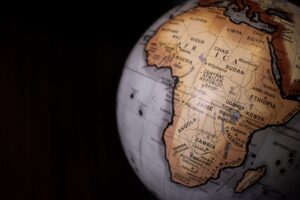
With this year’s ID4Africa AGM event having taken place in Kenya, the digital identity-focused event appears to have prompted a slew of comments from the country’s leadership concerning Kenya’s own digital ID efforts.
About a week before ID4Africa, ICT secretary Eliud Owalo said the government was actively working on such a system for the country and that it is currently involved in “a benchmarking exercise in countries like Estonia and Pakistan.” Authorities are aiming to give every Kenyan a digital ID by March of next year, he said.
That’s a slight delay from President William Ruto’s previous goal of establishing a digital ID by the end of this year, as communicated in a speech in January. In his latest comments on the program, Minister Owalo underscored that the new digital ID system will be distinct from Huduma Namba, a biometric ID effort initiated under the leadership of a former President in 2019.
Owalo’s comments were shortly followed by a further disclose from Kenya’s Principal Secretary of Immigration and Citizen Services, Julius Bitok, who said the country will take cues from Pakistan’s digital identity program as it seeks to build one of its own. Bitok’s comments came after a meeting with Bitok’s Pakistani counterpart, Syed Ali Murtaza, which involved a tour of the National Database and Registration (NADRA) in Islamabad.
In 2021, NADRA launched a mobile app enabling Pakistanis to register for the country’s National ID program remotely, in a process that involves face and fingerprint capture. It isn’t yet clear if such an app is planned for Kenya, but NADRA’s example may intrigue Kenya’s leadership.
On that note, during ID4Africa, Kenya’s Interior Cabinet Secretary, Kithure Kindiki, said the country will upgrade from its current Automated Fingerprint Identification System (AFIS) to an Automated Biometric Identification System (ABIS) that will also support facial and iris recognition technologies. He also explained that the country’s planned digital ID system will use a ‘Unique Personal Identifier’ issued to all newborns.
All of these disclosures suggest a fast and furious pace on the part of Kenya’s government as it pursues an apparently quite ambitious digital ID program — one that could itself serve as a model for others, if all goes well.
Sources: The Star, Citizen Digital, Capital News
–
(Originally posted on Mobile ID World)








Follow Us